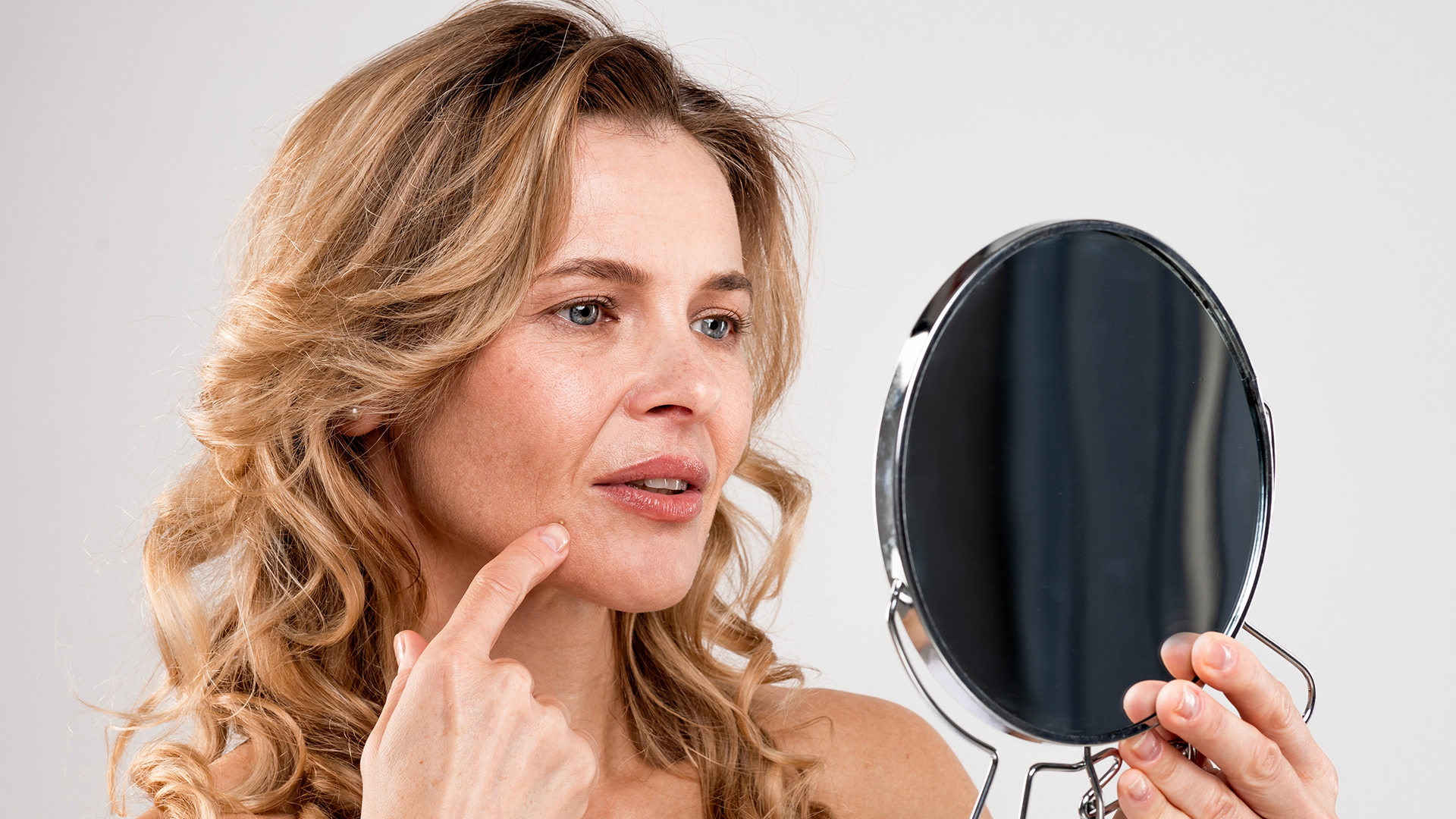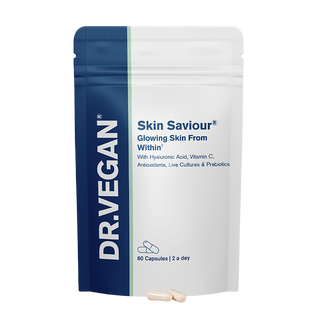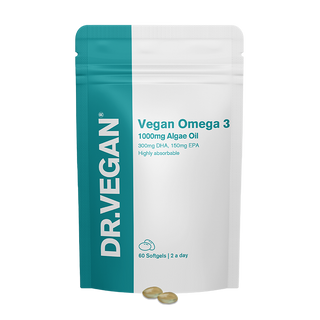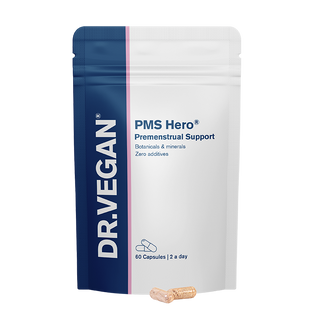Best foods for acne

Most of us have suffered from acne as teenagers or as adults, but too few people realise they can do something about it, whether it's hormone or diet related. Our nutritionists explain the causes of acne and share their advice on how to prevent acne, minimise the risk of getting acne, and the best foods and supplements for beating acne.
What is acne?
Acne is a common inflammatory condition of the skin. There are several types of acne, however, the most common is called 'acne vulgaris' which is the typical pimple-causing acne. This type of acne generally causes oily skin, and the skin can become painful and hot to touch. The oil gets trapped in the pores of our skin and infection sets in, resulting in spots.
Understand your diet. Create your free Diet Profile.
What causes acne?
Few people go through life without experiencing acne at one time or another, and it's not just limited to teenagers - adults are just as prone to acne. For example, 40%* of women will suffer hormonal acne as a result of PMS, while menopause plays havoc with skin.
Teenage acne
Acne in teenagers is most commonly hormone-related. The fluctuations in hormones as we go through puberty can cause an increase in the thickness of 'sebum'.
Sebum is the oil that is naturally produced by our skin. If the sebum is too thick, the body has a hard time pushing it up and out of the skin, resulting in blocked pores and pimples.
Adult acne
Acne in adults can also be due to unbalanced hormones. However, adult acne is more likely to be caused by dietary factors which contribute to the thickness of sebum, excess bacteria and inflammation. Your diet can reduce the thickness of sebum and the risk of getting acne.
You may also enjoy learning about how menopause affects your skin, and the 6 signs of an unhealthy gut, where skin conditions are the most common sign of poor gut health.
Poor diet acne
Poor diet and nutrient deficiencies are bad news for our skin. If there is not enough fibre in our diet, toxins will not be excreted by the bowels in time and they will get pushed out through the skin, contributing to inflammation and acne. Learn more in 'What does your poo say about your health'.
Nutrient deficiencies also contribute towards hormone imbalances which are reflected on the skin through pimples and inflammation.
Skin Saviour®

Preventing acne
Diet
Our diet plays a vital role in the management of acne as teenagers and adults. We all know we should eat our fruits and vegetables, and this is even more important for those suffering from acne. The nutrients and fibres in fruit and veg have a very positive and calming effect on the skin.
Having the right oils in your diet is also important, as we highlight in 'Healthy fats and unhealthy fats explained'. Too many trans and hydrogenated fats cause inflammation in the skin. However, other oils, including cold-pressed oils, nuts and seeds, and omega 3, have an anti-inflammatory action and help minimise the risk of acne.
Learn more in 'Best oils for cooking' and also 'Best foods and vitamins for glowing skin'.
Natural face cleaning products
Use gentle, natural cleaning products, particularly if you're removing makeup. Get yourself into a cleansing routine that helps to keep the pores clear which in turn helps to prevent the formation of pimples. Choose products that have a natural anti-inflammatory and anti-bacterial action.
We recommend natural and organic skincare brands including Tropic Skincare and UpCircle Beauty.
Best foods for acne
Here are the best foods for staying on top of acne, and you may also enjoy reading 'A nutritionist's secret to glowing skin'.
Pumpkin seeds
Pumpkin seeds contain high levels of zinc which helps to regulate testosterone levels in the body. Too much testosterone contributes towards thick sebum and clogged pores, which is also why acne is a common symptom of a deficiency in zinc. You may be interested in reading 'What does Zinc do to your skin?'.
Pumpkin seeds also contain beneficial healthy fats and Magnesium. Magnesium is needed for managing insulin and helping to regulate our blood sugar levels. Too high or uncontrolled blood sugar levels can contribute towards acne, and is also a contributory factor in hormonal acne during PMS, where blood sugar levels fall before your period.
Learn more in 'How do I know if I'm deficient in Magnesium' and you may also enjoy 'Symptoms of high and low blood sugar'.
Fresh fruit
Fresh fruit contains Vitamin C which is vital for dealing with acne in a number of ways.
Vitamin C works as an antioxidant and helps with the healing and repair of skin. Vitamin C is also needed directly for our body's natural production of collagen. Just increasing your Vitamin C intake alone can make a huge difference to the health of your skin and other collagen-dependent structures in the body.
Fruit also promotes the growth of good bacteria in your gut, and your gut health plays the biggest role in the health of your skin as an adult. A healthy gut and gut microbiome can help to keep inflammation under control, reducing some of the negative effects of acne.
Beans, lentils, nuts and seeds
Consuming protein with each meal or when snacking through beans, lentils, nuts and seeds helps to prevent blood sugar spikes. When your blood sugar spikes, it causes the body to release a substance called 'insulin-like growth factor'. In excess, 'insulin-like growth factor' causes the glands in our skin to produce more oil, potentially leading to more clogged pores and acne. Learn more in 'What is insulin resistance'.
High fibre diet
Fibre is essential to remove the toxins out of our body with regular bowel movements, and this process helps prevent the toxins from being pushed out through the skin which can otherwise cause acne.
Fibre also feeds the good bacteria in the gut which further aids the elimination of toxins, and fibre has an anti-inflammatory effect on the whole body, including the skin. You should aim for 7-9 portions of vegetables and fruits per day and make sure you're eating whole grains instead of refined grains. Refined grains are the #1 cause of IBS and bloating, so it's always wise to avoid these!
Best acne supplements
Antioxidants
'Antioxidants' have free-radical scavenging properties. 'Free radicals' are unstable atoms in our bodies that can damage cells, and cause illness, ageing, inflammation and acne.
The best vitamins that are antioxidants include Vitamin C, Vitamin E and beta-carotene, along with Selenium, Vitamin A and lutein.

Discover Skin Saviour®, a high-strength formula to help with blemishes and fuel a clearer, glowing skin complexion.
Antioxidants have been shown to help reduce inflammation in a few ways. Because acne is an inflammatory condition, the higher your intake of antioxidants the better, because they help reduce inflammation. These free-radical scavenging nutrients are also beneficial for collagen production in the skin - collagen is a protein that forms the main structural and elastic component of our skin.
Plant compounds and herbs can be even more powerful antioxidants to fight acne, including Grape seed, Bilberry and Green Tea, as found in Skin Saviour, the acclaimed supplement for helping with acne and blemishes, and fuelling naturally glowing, healthy and plumper skin.
Did you know collagen supplements are made from the boiling of bones and skin of cows or shellfish? Learn more in 'The truth about collagen'.
Omega 3
Omega 3 fats are important for our overall health and especially for the health of our skin. Omega 3 fats have potent anti-inflammatory actions within the body and are needed for the integrity of the skin. Studies show that daily Omega 3 supplementation reduces acne - this study used fish oil, however, algae oil is the vegan alternative, has better active compounds, and is a much kinder choice for fish and the planet.
Vegan Omega 3

Curcumin & Turmeric
Curcumin, the active compound in Turmeric, is acclaimed to have a number of beneficial actions to address acne. Curcumin targets the biological source of inflammation and can decrease inflammation on the skin and in the gut. Decreased inflammation in the gut leads to better growth of probiotics which help regulate inflammation further through the immune system, producing a favourable effect on the skin and across the whole body.
Learn more in '5 benefits of Turmeric'.
If you enjoyed reading, we think you'll also enjoy our nutritionist-written articles:
- Understanding and managing Psoriasis
- How bad is tanning for skin health?
- Best foods and vitamins for glowing skin
- What men should know about skin health
- Why Zinc is so important for your hair and skin
- The truth about collagen
*Based on a UK survey conducted by DR.VEGAN® of 32 customers, nationally representative, during November 2022. All customer survey findings reflect our own efforts and have not been influenced or verified by any external organisations or third-party entities.
Want to hear more from our nutritionists? Sign up to our free newsletter:


















